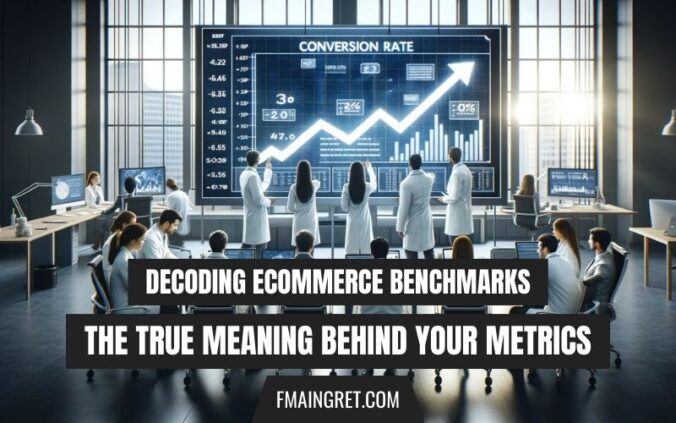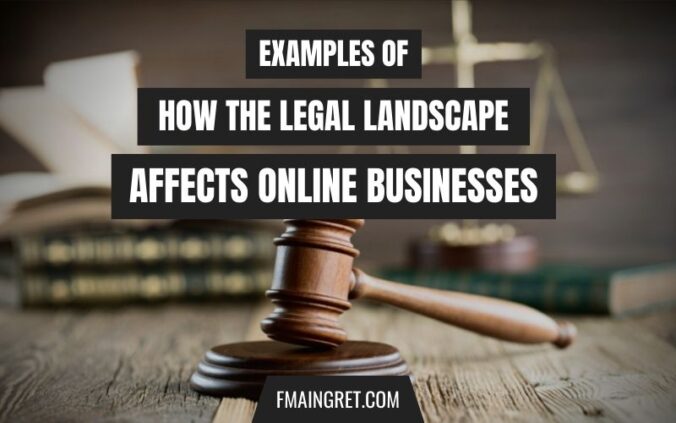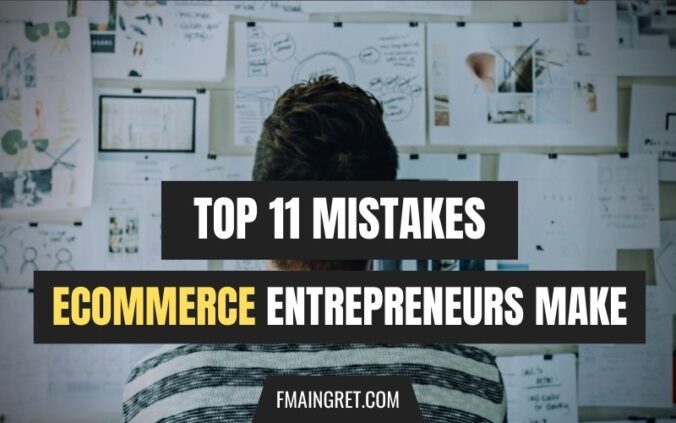In this super competitive world, everyone wants to see how they rank. Which football team is leading this season? What are the top 5 best-selling smartwatches? Which car has the best 0-60 times? In reality, the most important question is arguably, “Am I doing well compared to my competition?” That’s where benchmarks come in, and they’re everywhere – from tech, health, and of course the business world.
Continue readingTag: ecommerce (Page 8 of 11)
In my opinion, one of the main reasons behind Amazon’s success is its attractiveness for 3rd party sellers. The large amount of traffic and the easy way to generate sales (profitability is another story) certainly helped. Another big reason is their fulfillment network, notably their FBA program. When I didn’t know much about Ecommerce, I thought the idea of 3rd party logistics programs was genius and a huge opportunity for ecommerce entrepreneurs. It is no surprise that Walmart, a serious contender in the US Ecommerce space, launched their marketplace along with their WFS (Walmart Fulfillment Services) program.
Continue readingI could write a whole article on the Ad that turned Dollar Shave Club into a billion-dollar company. The ad was hilarious, but also communicated the company value proposition very well : quality razors delivered to your door at a fair price. But instead, I want to go over Unilever’s announcement to sell the majority of its stake in Dollar Shave Club to Nexus Capital Management.
Continue readingRemember when the ecommerce world was the Wild West? Back in the early 2000s, when companies could collect any data they wanted, and there were little standards for online transaction security. Times have changed, but threats are still there, and we now see new regulations every day. Authorities and regulators must ensure that consumers are protected, and the business environment is fair for all its actors. You can hear about it in the daily news. The Federal Trade Commission is going after Amazon, the Indonesian government is taking action against social media, etc. The legal environment has a massive impact on competitive dynamics, and it is important that entrepreneurs understand the current regulations where they operate.
Continue readingAh, Halloween. That time of the year when children are allowed to trespass with a mask on, and take candy from strangers. It’s also the time when adults either wear the cheapest, last-minute costume, or go crazy and compete for the most elaborate outfit. Although there are major differences in how much each customer spends, the Halloween season is still an economic powerhouse. It is estimated that the average consumer will spend $108 in 2023, up from $100 last year. Halloween is a major event for retailers, and customers’ interest does not decrease. Let’s see how customers shop during the season and how businesses can plan for it.
Continue readingEveryone has a few products they love, but only buy when they are on sale. Whether it’s electronics, luxury fashion, or even our favorite candies, sometimes we just refuse to pay full price, but are quick to pull out our credit card when we see a good deal online. For me, this product is Liquid IV. I feel like it really helps me not be dehydrated after a long flight. I wasn’t surprised when I heard that Liquid IV products were among the top sellers during the successful Prime Big Deal Days event on October 10-11.
Continue readingDo you take the time to read reviews from other customers before ordering something online? If you do, you’re in good company, as about 95% of shoppers do the same. However, you probably know that not all reviews online can be trusted. In the digital marketplace, it is common for unscrupulous companies or individuals to generate fake reviews, either to boost their sales or harm the reputation of their competitors. The proliferation of these deceptive reviews has become a huge problem in the e-commerce world. That is why six online titans have formed the Coalition for Trusted Reviews. Amazon joined Booking.com, Expedia Group, Glassdoor, Tripadvisor, and Trustpilot to share best practices and fight fake online reviews.
Continue readingWhen I started my first business, I dedicated several months to work on my D2C website. I was very proud of having my own website with my own products for sale. It was only when I thought my website was good enough that I created my Amazon Seller account. I was surprised to see that it barely took me two weeks to create my Amazon listings and secure my very first sale. If only I had created my Amazon before working on my website, I could have made six months’ worth of sales before opening my D2C channel. I didn’t have a good idea of what sales channel to prioritize at the time, and this was a costly mistake.
Continue readingSome people remember their first kiss, others their first time flying, I remember my first Amazon order. It was almost a decade ago, I had just moved to Philadelphia as an exchange student. I remember finding the stupidly expensive textbook I needed for a class on Amazon at 20% of the university bookstore price. This is when my journey with Amazon began. Back then, Amazon US already offered a huge selection of products, compared to European marketplaces. I was fascinated by how easy it was to find unique products and great deals. And let me tell you, things have changed. Sometimes, I’d like to go back in time and analyze the 2014 Amazon to compare it to the current version. As we will see in this article, there were many changes regarding the product search process. Changes so radical the FTC now has an eye on it.
Continue readingDid you know that even when shoppers discover a product they like on a retailer’s website, 90 percent of them still compare it with Amazon’s offerings or prices? It shows how bug Amazon’s influence is in the ecommerce landscape and why they strive to offer the best deals to their customers. However, if you’ve been reading the news, you likely know of the antitrust lawsuit that has brought Amazon under scrutiny.
Having spent many years as a seller on Amazon in multiple countries, I was very interested to hear more about it. The lawsuit accuses Amazon of using monopoly power to push higher prices for consumers, overcharge its 3rd-party sellers, and stifle competition. I would like to go through the key parts of the lawsuit, and reflect on what can be done to improve the situation for all stakeholders, including customers.
Continue reading


